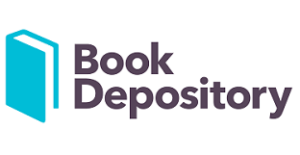Let’s address a fundamental truth: your HR team may sometimes struggle to keep pace with the demands placed upon them. But before jumping to conclusions, it’s crucial to recognise that the HR professionals I encounter regularly are well-trained experts in their field. The real challenge lies in the difficulty HR leaders face in quantifying the team’s workload accurately. This lack of visibility makes it challenging to explain to managers and senior leadership where time is spent and why initiatives take longer to materialize than expected. So why is it so difficult to know what is happening in the team?
1. Increasing HR Workload
The role of HR has changed radically since it was initially conceived as an Admin and personnel function. The workstack of Human Resources has only got bigger and challenges such as finding and developing talent in a competitive landscape, increased compliance burden and rapid massive workplace changes have become increasingly demanding, requiring HR professionals to continuously evolve their skills and strategies to effectively meet the needs of both the organisation and its employees.
2. Lack of digitisation
HR’s systems are often dictated to them by finance functions or from IT who don’t really understand the day-to-day needs of modern HR teams. HR tend to defer on their requirements to what they see are more technical people. The fallout of this has been HR technology as an afterthought or a collection of disconnected systems (or spreadsheets) on which organisations are managed.
3. Context shifts, surprises, and the nature of HR work
HR work is seldom boring, but the dynamic nature of the work means that it can be difficult to predict on a day-to-day basis what issues might arise and what emergencies might land in the inbox. Regular surprises and context shifts are a part of the everyday world of HR.
4. Repetitive and time-consuming processes
Waiting. HR people, especially those in HR Business Partner roles spend a lot of time waiting. Waiting for approvals, responses to emails, technical input, manager feedback. These wait times and follow-up cycles are time-consuming.
With all this organisational debt and lack of a sense of progress, it’s no wonder that HR professionals often feel burned out and underalued.
So, how can we address these?
Here are a few steps HR teams can follow to increase their overall productivity.
1. Understand the different kinds of work
Simplify HR work into three buckets: Projects, Business as usual, and Surprises. Recognising and categorising these tasks helps in better planning and prioritisation. Surprises are the unexpected work that lands in HR’s inbox every day. From my studies 20% of work is made up of these surprises so expect the surprises when planning your day and make time in your calendar to handle these unexpected items!
2. Visualise work in progress
Map out everything the team is working on, from emails, helpdesk tickets, to recruitment and performance management. This visualisation allows teams to make sense of their workload and begin to plan and prioritise effectively.
3. Give it a label
Use Kanban boards to manage workload in hybrid environments. Label the kind of work being done (e.g., interviews, onboarding, training) for simple analysis.
3. Priority is Singular
Encourage teams to prioritise work using tools like the Eisenhower prioritisation grid or effort-versus-impact tracking.
3. Size up the work
Use T-shirt sizing to assess the size of projects and break down bigger projects into smaller, more manageable tasks.
3. Measure task completion time
Get a sense of how long tasks take to complete to identify bottlenecks and provide data for future estimations.
3. Track, measure, and analyse
Measure the team’s capacity to deliver over time and identify areas for improvement, such as process optimisation or task automation.
3. Rinse and repeat
Continually improve ways of working based on insights gathered.
The Impact:
HR teams that implement these strategies report feeling more in control of their work, better able to communicate progress and workload to management, and identifying improvements to increase productivity. By effectively managing workload, HR teams can unlock their full potential and drive organisational success.
Ready to transform your HR team’s productivity? Get in touch with WorkMatters and we can help transform your ways of working.
To find out how our range of solutions can help. Contact [email protected]. For more interesting insights and future events, do Follow us on LinkedIn.
Are you an HR professional facing these challenges? Check out our free trial of the AgileHR course – https://rise.articulate.com/share/XPYA-JZmx_uPyDSXpYqSObsb2V6IA6Hq#/
Author:
James Ryan, Senior Consultant, WorkMatters








